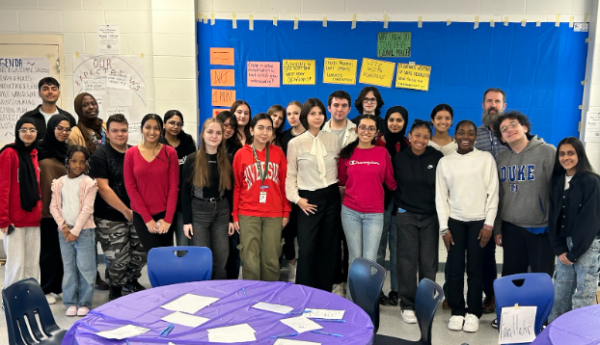
On April 25, 2024, the event “Dialogue Day: The Way to Peace” was held at Sayreville War Memorial High School in Parlin, New Jersey.
According to the faculty advisor of International Society, Mr. Quinby, “This was the most productive event in 10 years of managing this club.”
The event was initiated by Nina Salamatova, the youngest member of the NGO “Geopolitical Alliance of Women”, the youngest member of the annual Independent Delegation of Ukrainian Women to the UN and a student of Sayreville War Memorial High School. For Nina, it was the first experience of independent group facilitation.
“I am satisfied with the obtained result and the full involvement of the event participants in the dialogue,” said Salamatova.
The event was implemented as part of the activities of the International Society and Voices of the World clubs with the participation of co-presidents Riva Barbaria, Savi Sandiford and president of the ISC.
The event was modeled on the peacekeeping mission of the Independent Delegation of Ukrainian Women to the UN 2024, which is formed annually by the NGO “Geopolitical Alliance of Women” in partnership with the International Institute of Cultural Affairs (ICAI) that has a special consultative status at the UN.
The effectiveness of the dialogue was ensured with the help of ToP facilitation, an approach that helps a group with diverse opinions to reach a consensus in problematic areas, develop a joint plan of action and direct the combined efforts to its implementation.
It was planned and organized with the mentorship of Svitlana Salamatova, the Head of the Independent Delegation and President of the “Geopolitical Alliance of Women.” Svitlana implemented the ten years of experience using tools of ToP and strategic planning in Ukraine to the development of the project.
The event brought together teenagers who immigrated to the United States from countries experiencing armed conflict and those interested in working towards a more peaceful world.
Two hours of dialogue gave the participants an opportunity to understand the general picture of global crises through real stories of teenagers from countries experiencing armed conflict and to develop a joint plan of action to achieve peace. Moreover, students and teachers were able to find their personal role in peacemaking.
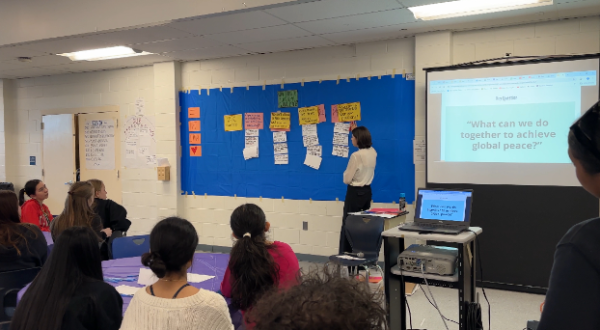
The participants developed a joint action plan or road map, which, as a result of its implementation, will help to achieve world peace. The plan consists of five actions that must be taken in order to achieve world peace.
| Engage in active conversation to limit bias and grow understanding | Advocate for your beliefs and voice your opinions | Create programs that spread unbiased information | Vote with purpose | Eliminate weapons of mass destruction and focus on communication |
| 1 | 2 | 3 | 4 | 5 |
| Empathy | Hold higher powers to a certain standard through protest | Don’t be silent, spread everything that is happening in the world | Voting for leadership that promotes peace | Agree to give up all weapons |
| Deconstruct your own biases to become more open-minded | Continue student protests at universities in support of liberating the oppressed | Educating each other using global platforms such as social media | Voting | Have countries spend less on military weapons and primarily focus on communication instead |
| Peace should be appreciated by everyone in the world | Peaceful protest during school events | Promote helpful organizations through social media | Eliminate violence and learn from past mistakes | |
| Developing empathy and compassion for those different from us | Educating ourselves about global affairs | |||
| Listen and understand each other’s thoughts and opinions | Education | |||
| Understand each other by communication | Donations / support during days of dialogue |
The main point of the dialogue was to understand the importance of communication with each other and that the ability to listen and hear each other is the core of peacebuilding.
Notably, students spoke about prejudiced attitudes in the educational environment and discussed the differences in traditions, culture and lifestyle, as well as about the need to understand and sympathize with each other.
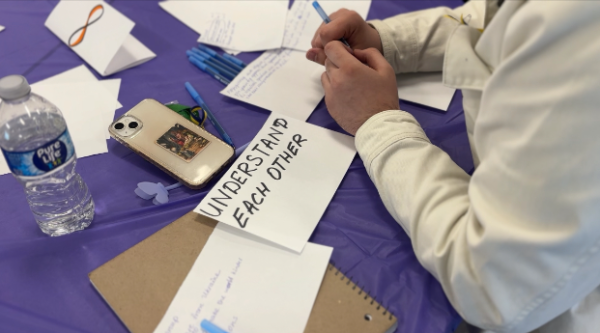
One of the actions recommended by students was to promote peace by “organizing protests,” emphasizing the importance of thoughtful planning and dialogue among protesters before the gathering itself.
Biased information is currently undermining the ability to approach global events with clarity and consciousness. The participants of the dialogue noted that in order to achieve peace, new programs aimed to block the spread of fake information should be created.
A crucial component of the event was the participation of teachers. Thanks to their participation, the dialogue pointed out the importance of the conscious choice of leaders who make key decisions in the government.
The last action in the ordered list above mentioned calls to eliminate weapons of mass destruction and focus on communication. The dialogue resulted in the main idea that peace consists of constant joint efforts.
The main results of the dialogue included:
1) American students became more aware of the essence of war
2) Learned to conduct a dialogue “without a fight”
3) Found their personal place in building global peace
4) Understood how to reach a consensus in the diversity of opinions
5) How to find joint solutions and build joint plans
6) Gained practical experience in directing common intentions
7) Gained experience in organizing the “ideal dialogue”
As a surprising outcome, 15 Ukrainian students, who had never united in the past year of studying, have now joined together in dialogue. It has been agreed to maintain this communication going forward. Interestingly, it is not quite common for Ukrainians to establish Ukrainian clubs in US colleges. However, there’s hope that this trend will shift with the arrival of a new generation of Ukrainians in the USA.
Rostyslav Plishka, a Ukrainian student from Lviv, who immigrated to the U.S. said that he “had a great fear that during the dialogue a verbal fight about the war in Ukraine would start. I had been directing my efforts for several weeks to find the right arguments to answer tense questions that could arise during the dialogue.” However, in reality the situation was completely different. Rostyslav received tremendous support and a sense of sympathy from the other participants as he told his war story.
In his opinion, the format in which the event was held is “the best of all, which operates today as a dialogue platform. This format should be extended to all schools in the USA and Ukraine.”
The president of the Geopolitical Alliance of Women, Svitlana Salamatova, said, “For me, the main thing is that Ukrainian children who have temporary protection in the USA due to the military aggression in Ukraine, understood the power of their weakness, felt the power of the influence of their living stories of being under threat of life in Ukraine on the consciousness of those with whom they study in the same school in the USA. An insufficient level of knowledge of the English language should not stand in the way of mutual understanding and common human values. Gradually, under the right mentoring of adults, Ukrainian children will be able to convey their love for Ukraine to American society, which should significantly reduce the fake understanding of Ukrainian content among ordinary Americans.”
The facilitator of the event, Nina Salamatova, expressed her gratitude to the team of facilitators, which consisted of board members of the International Society and Voices of the World Club and the principal of the school, Mr. Gluchowski for supporting the idea, trust and help in organizing the dialogue.
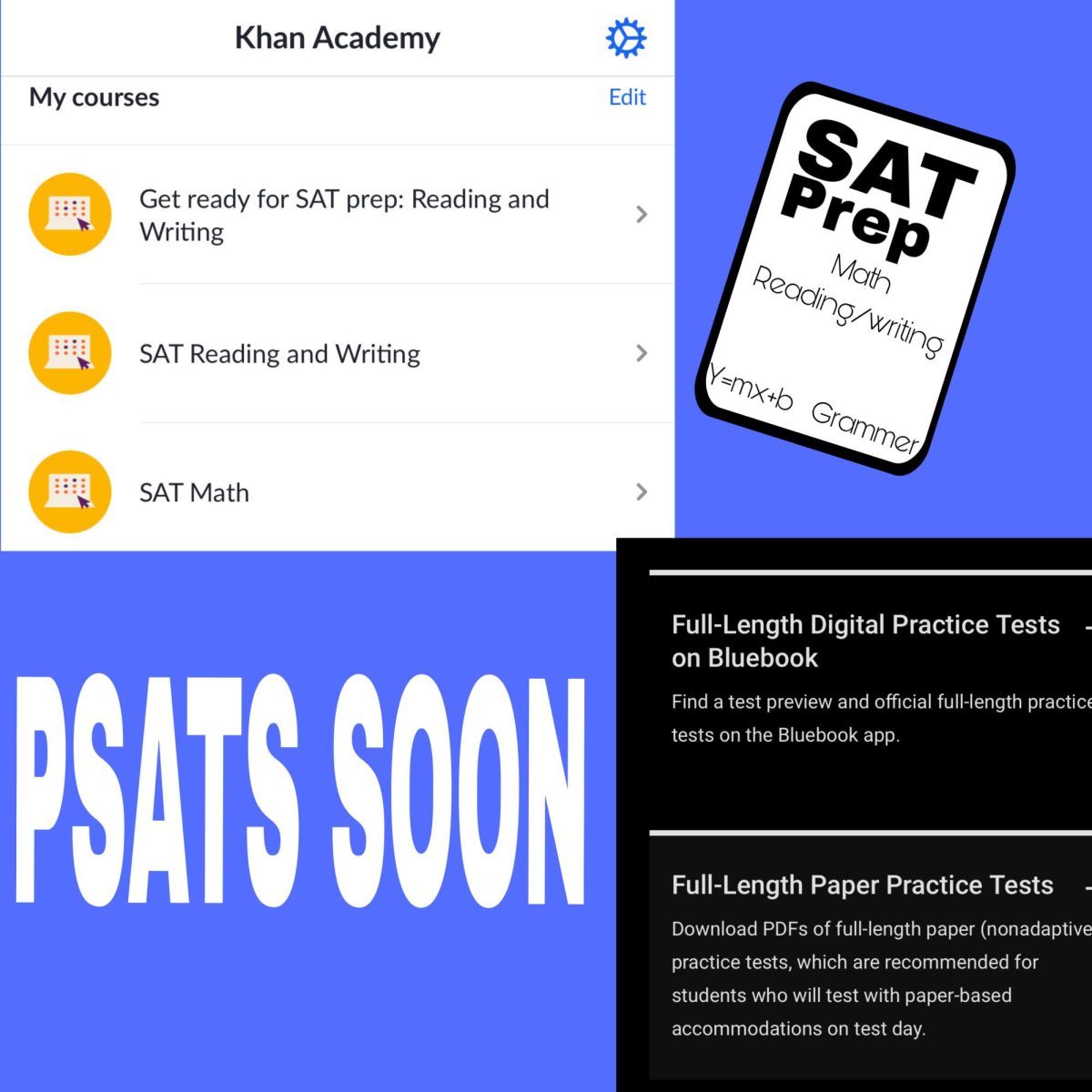

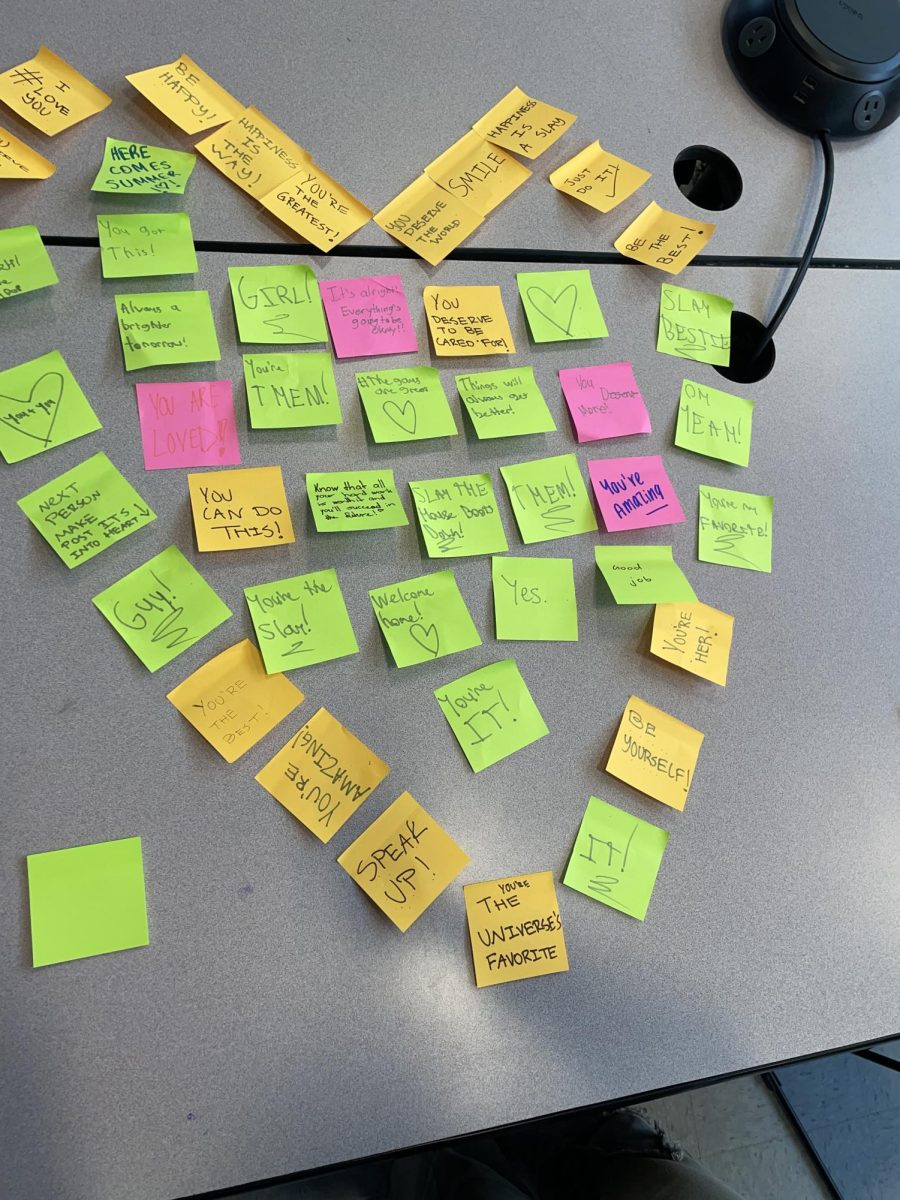

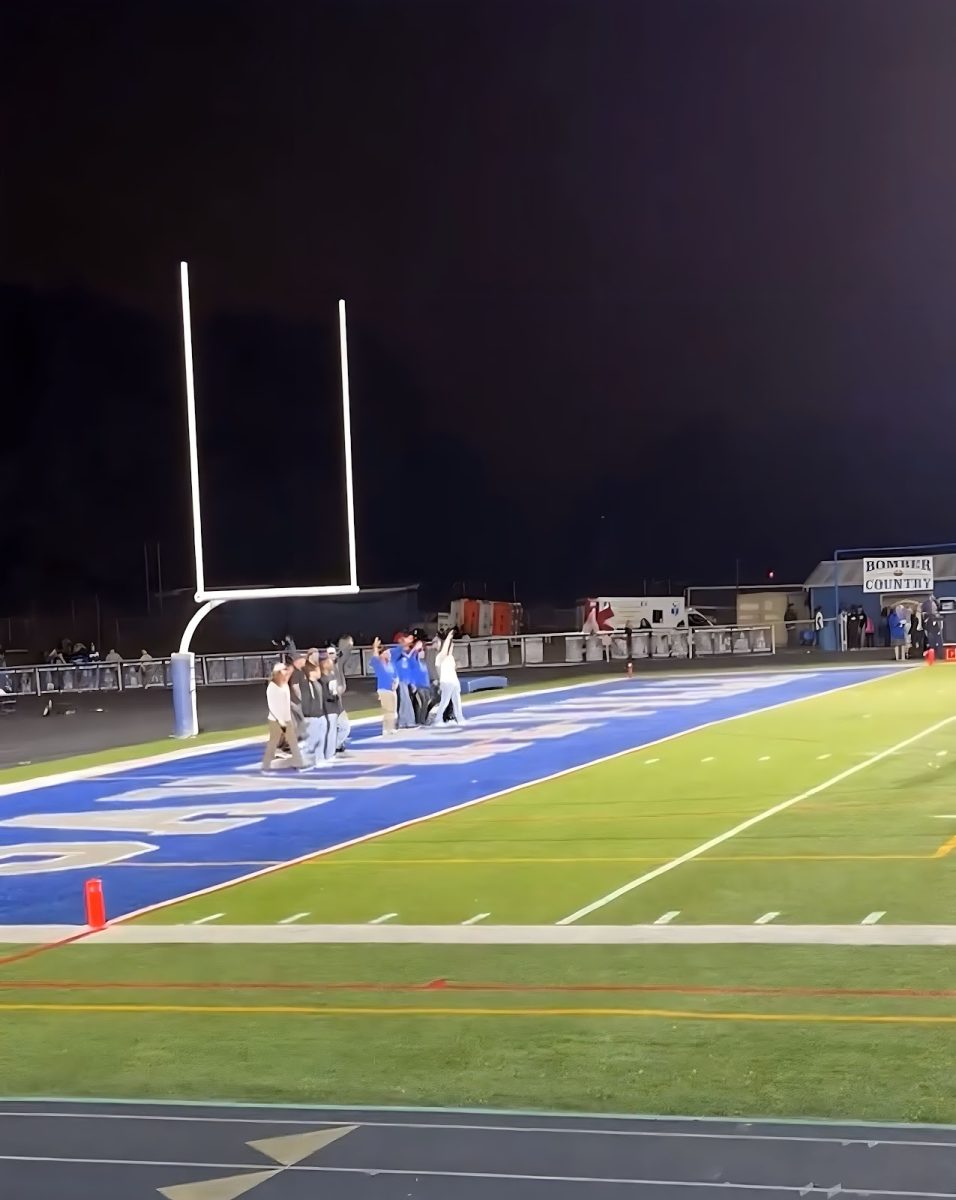
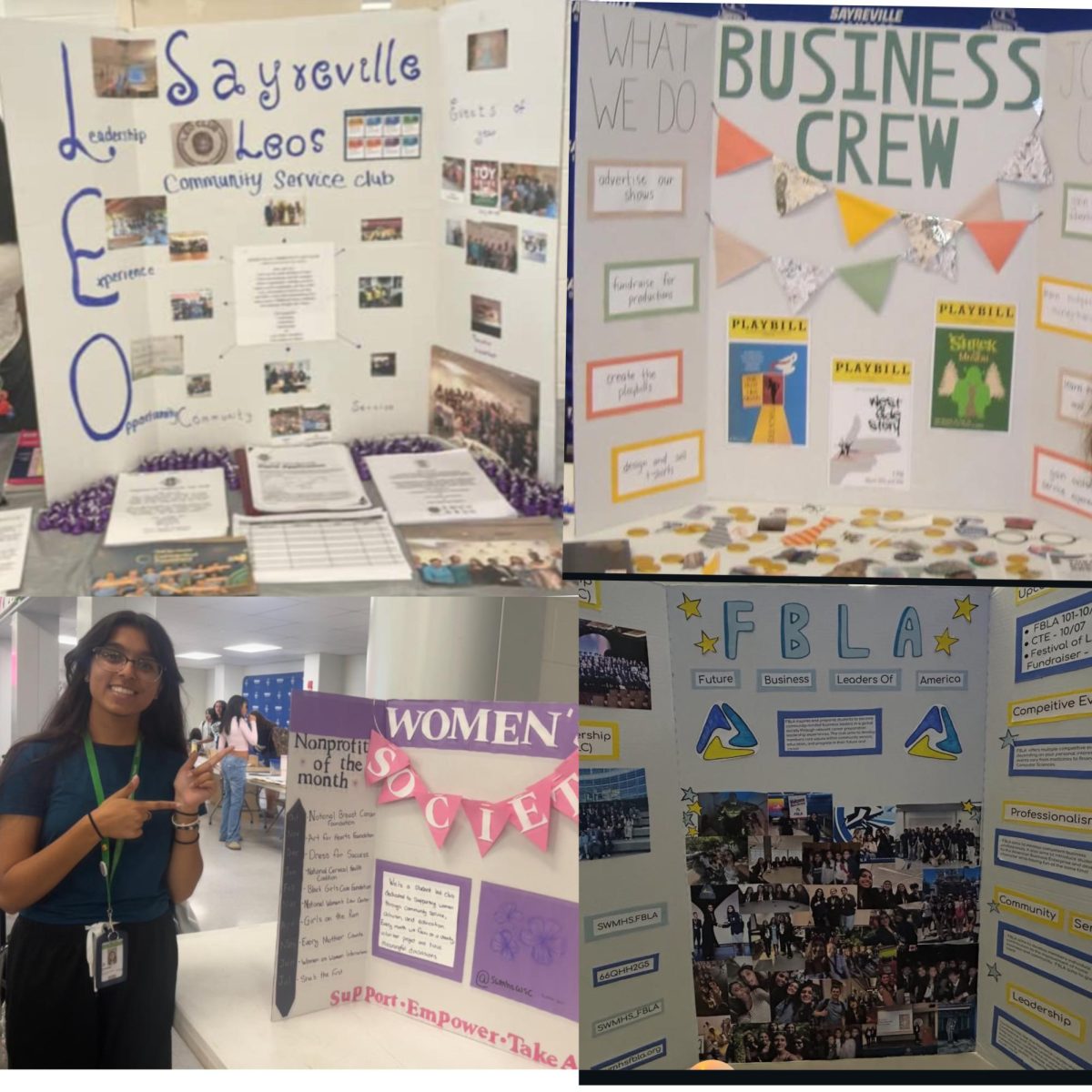

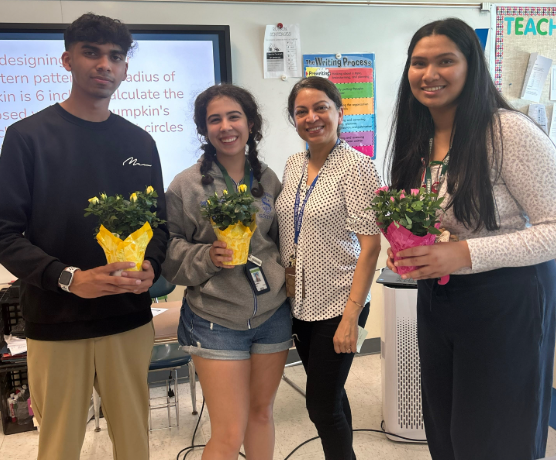
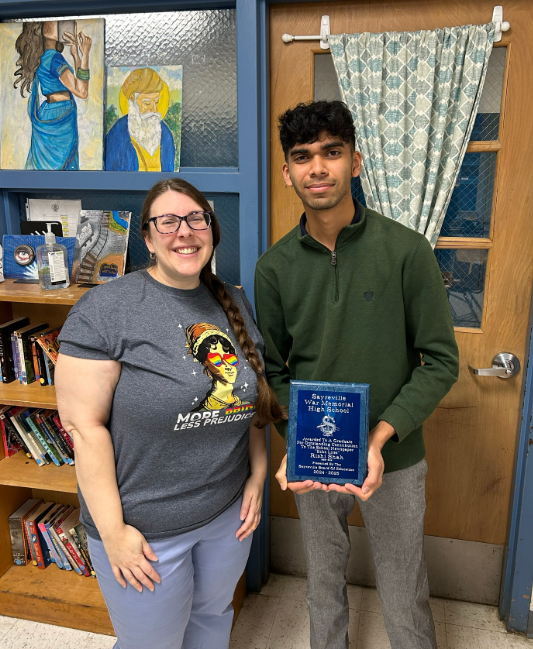
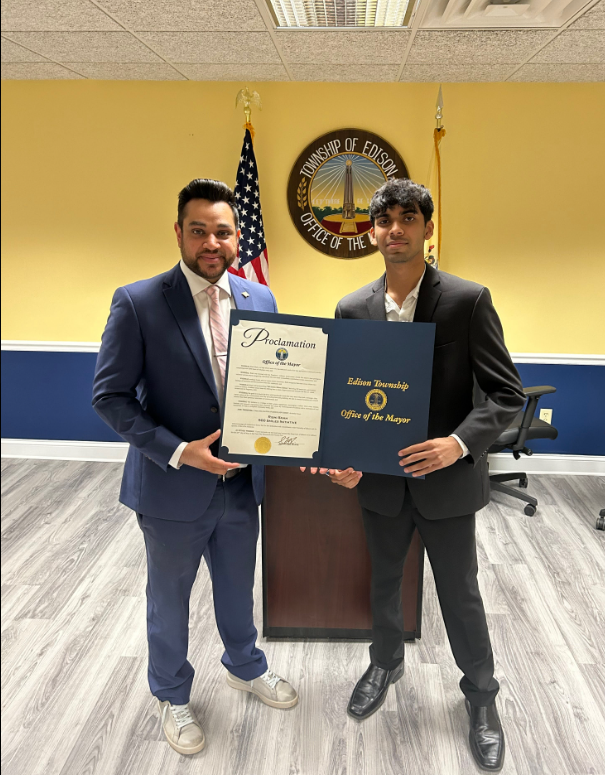
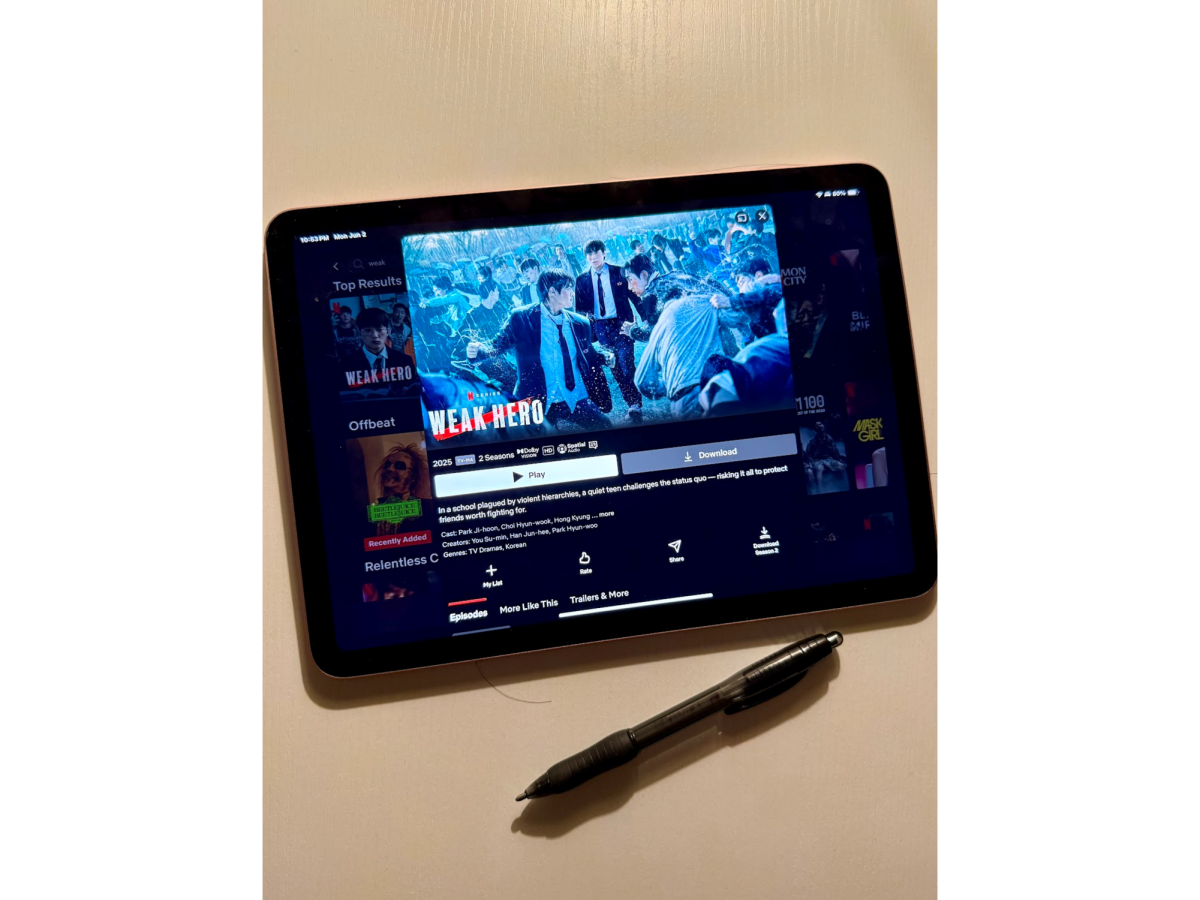
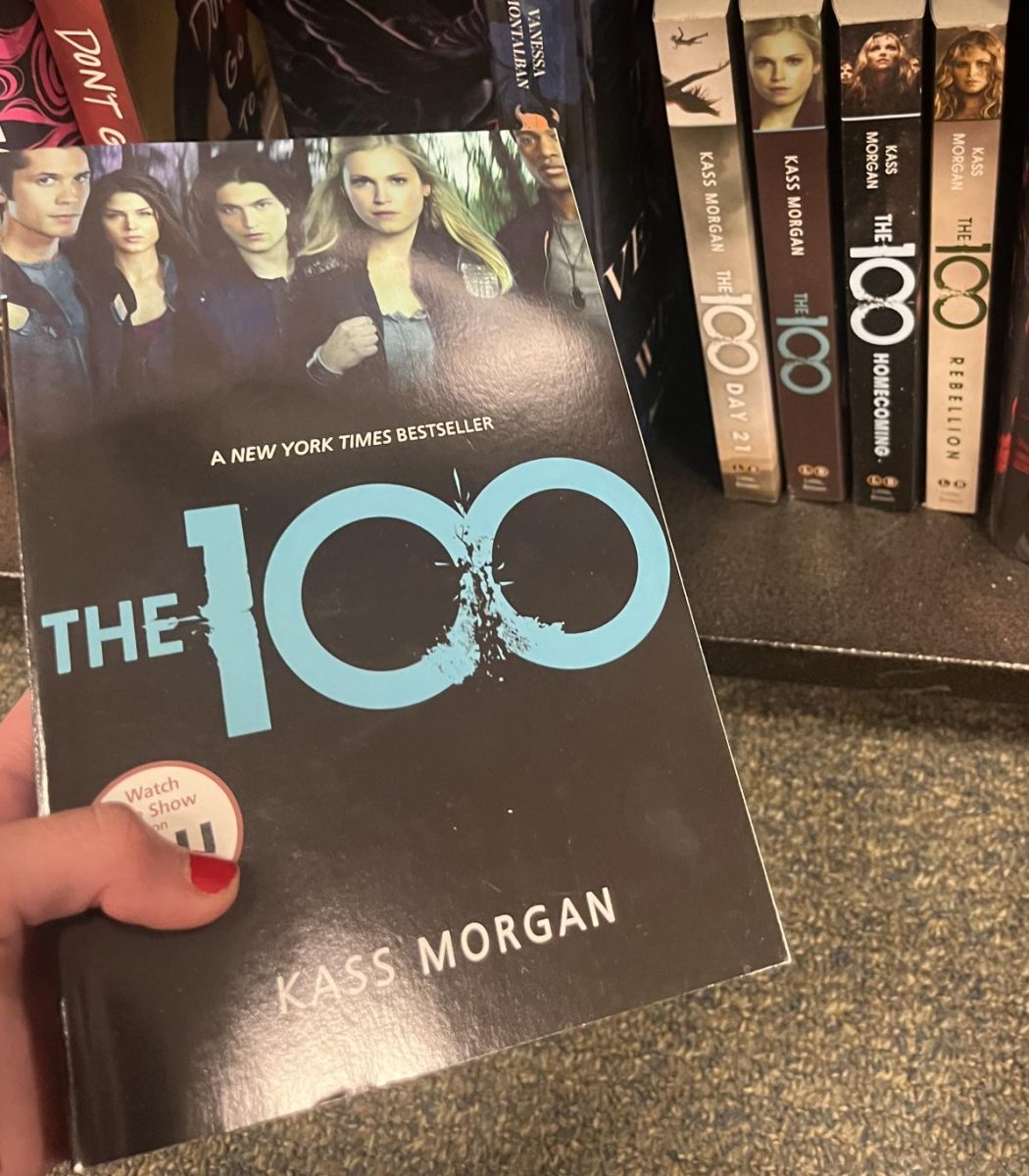
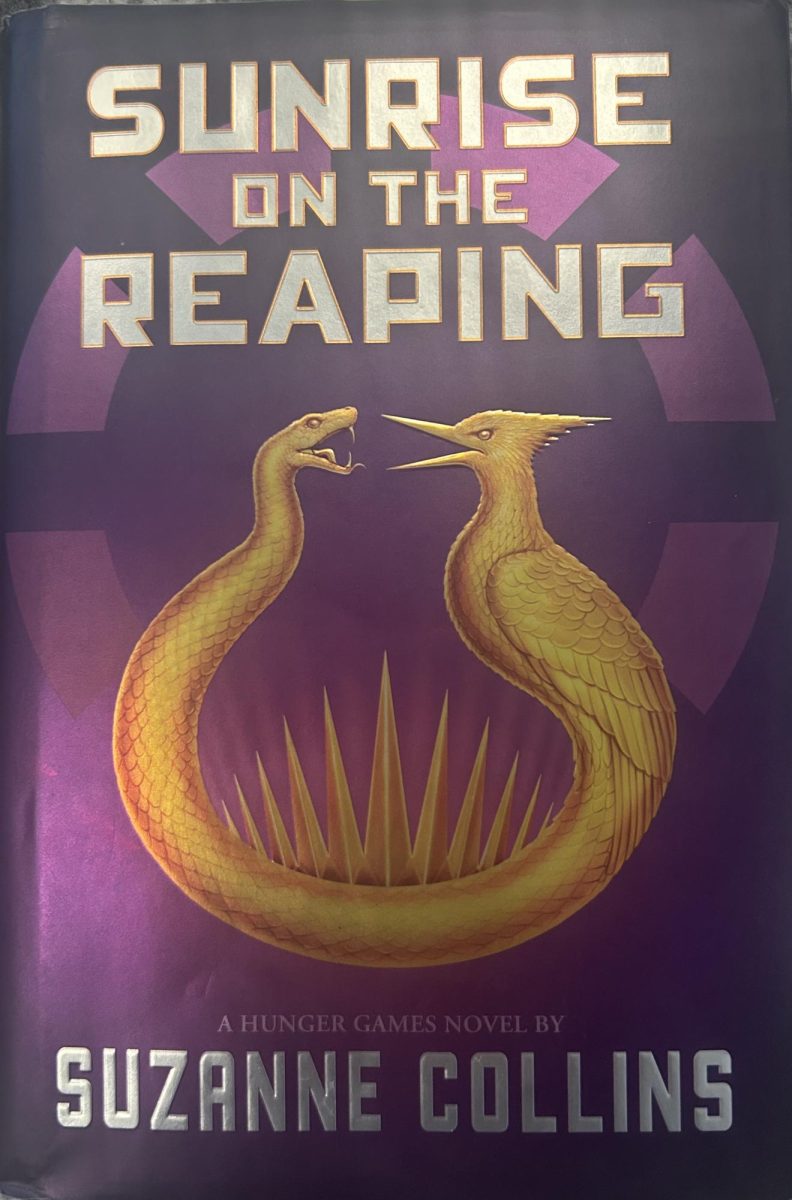
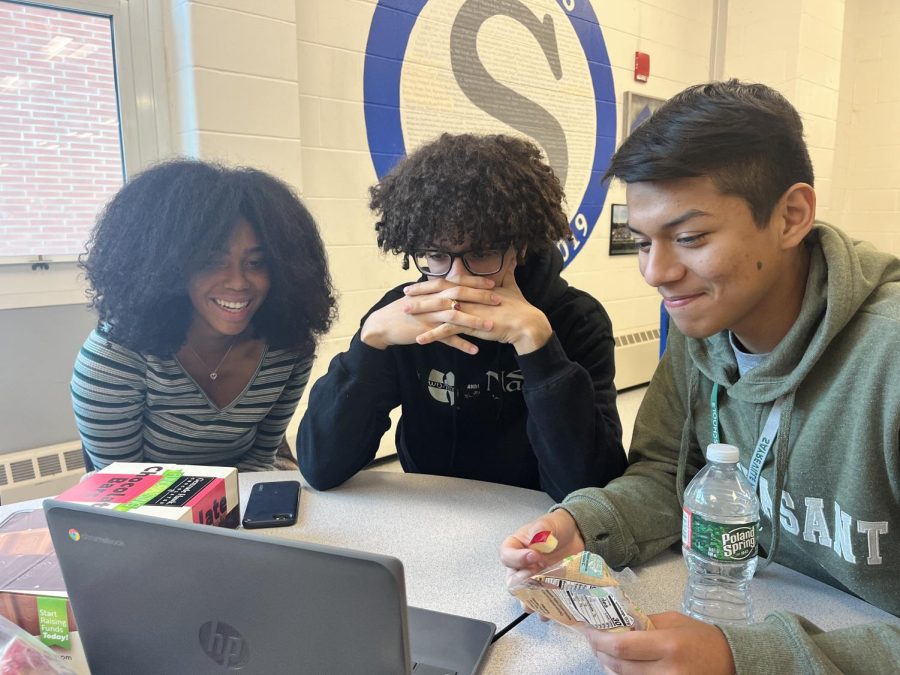
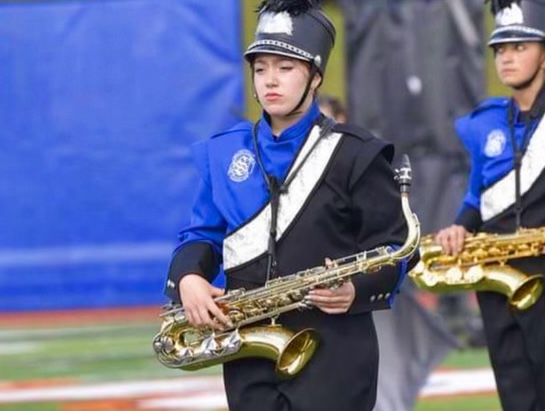
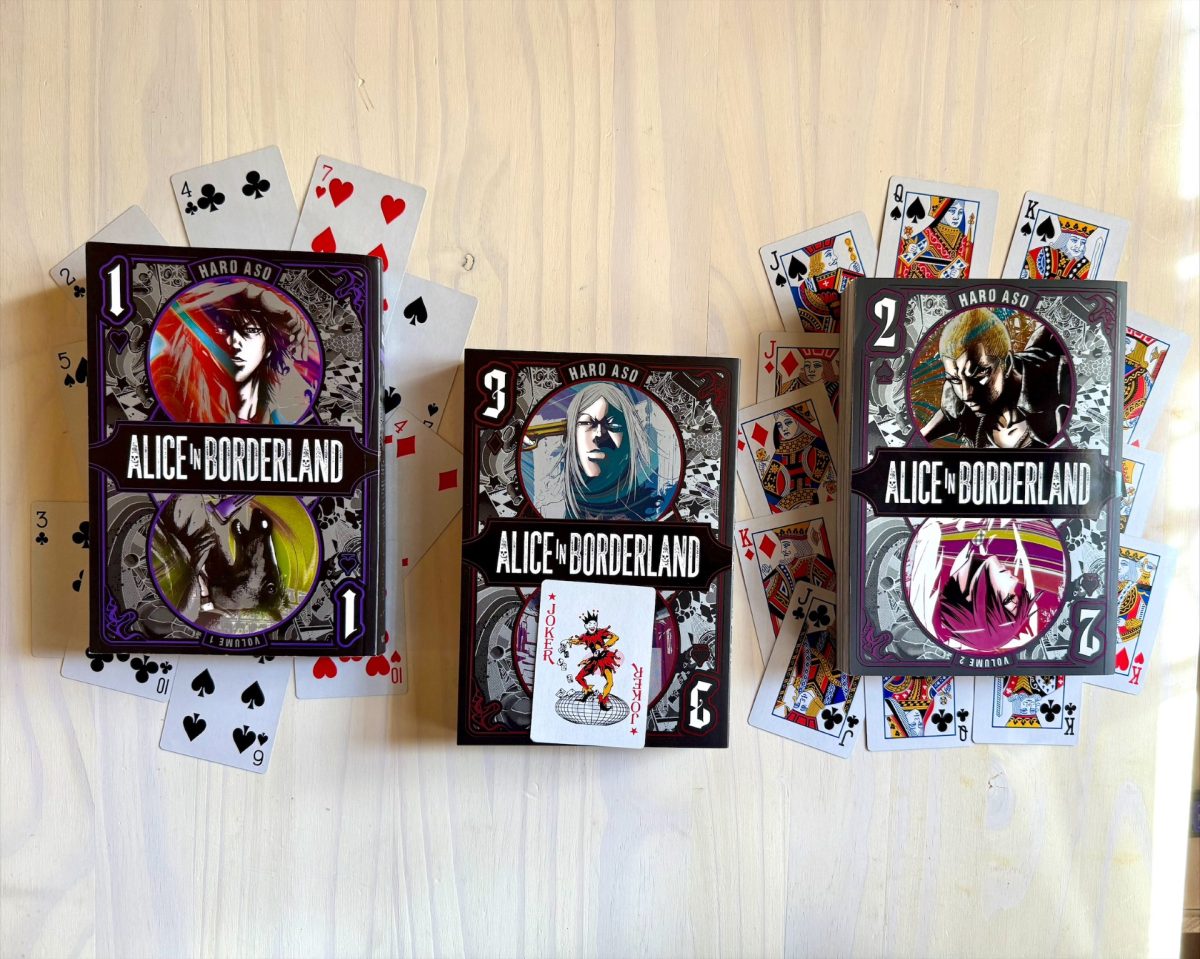

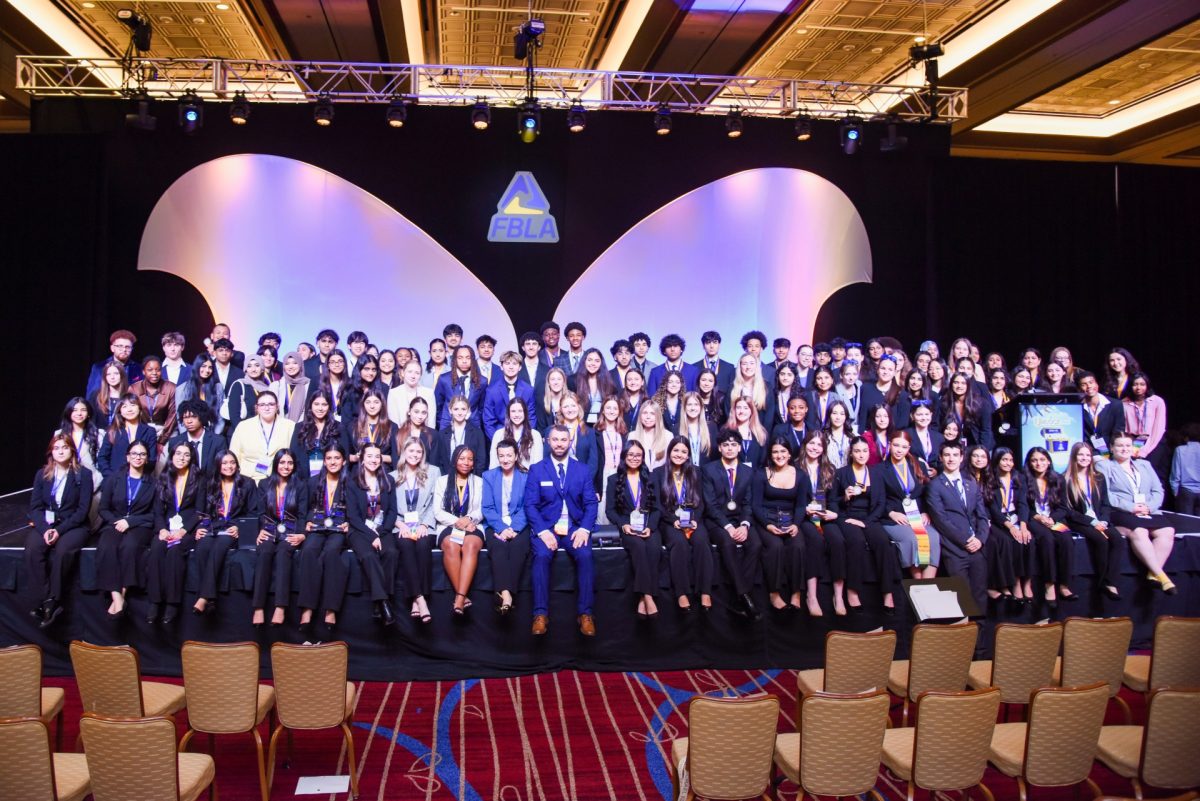
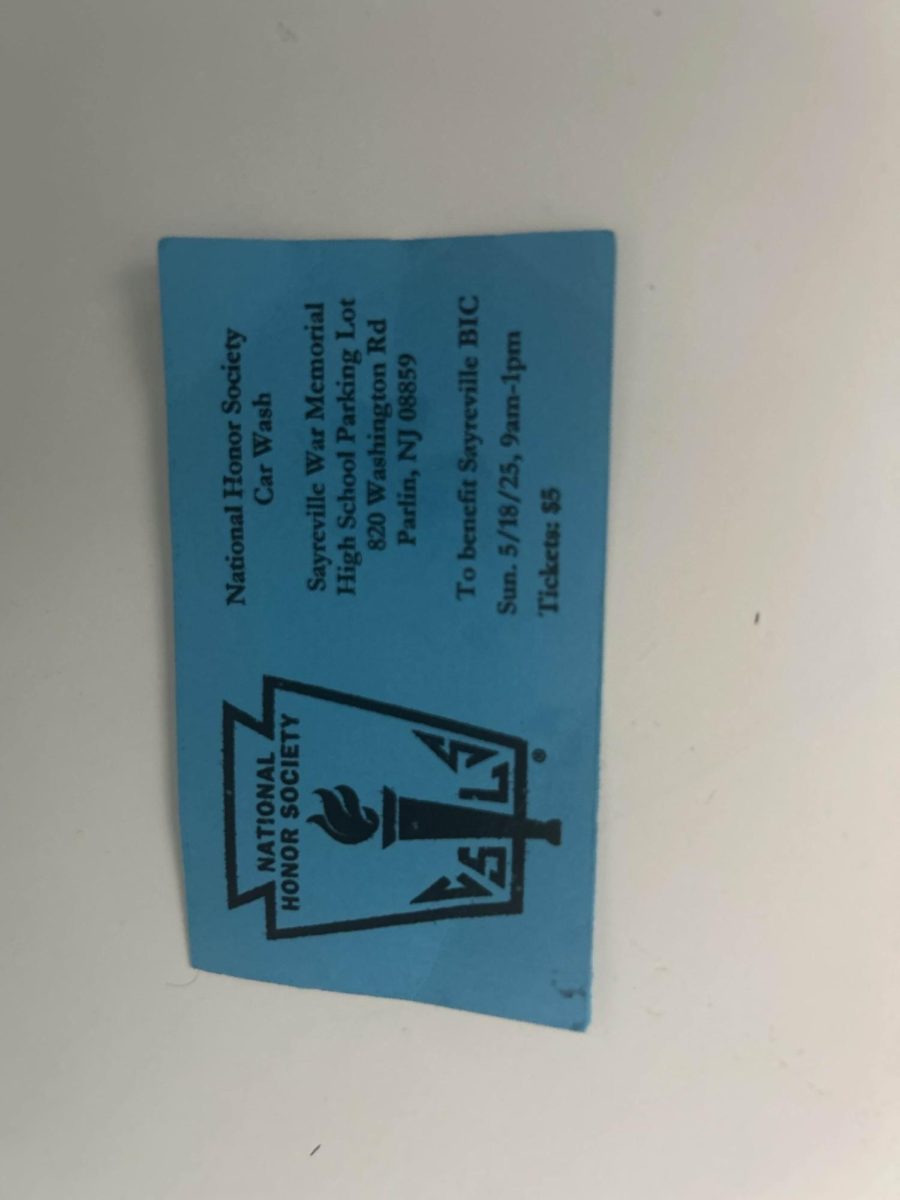
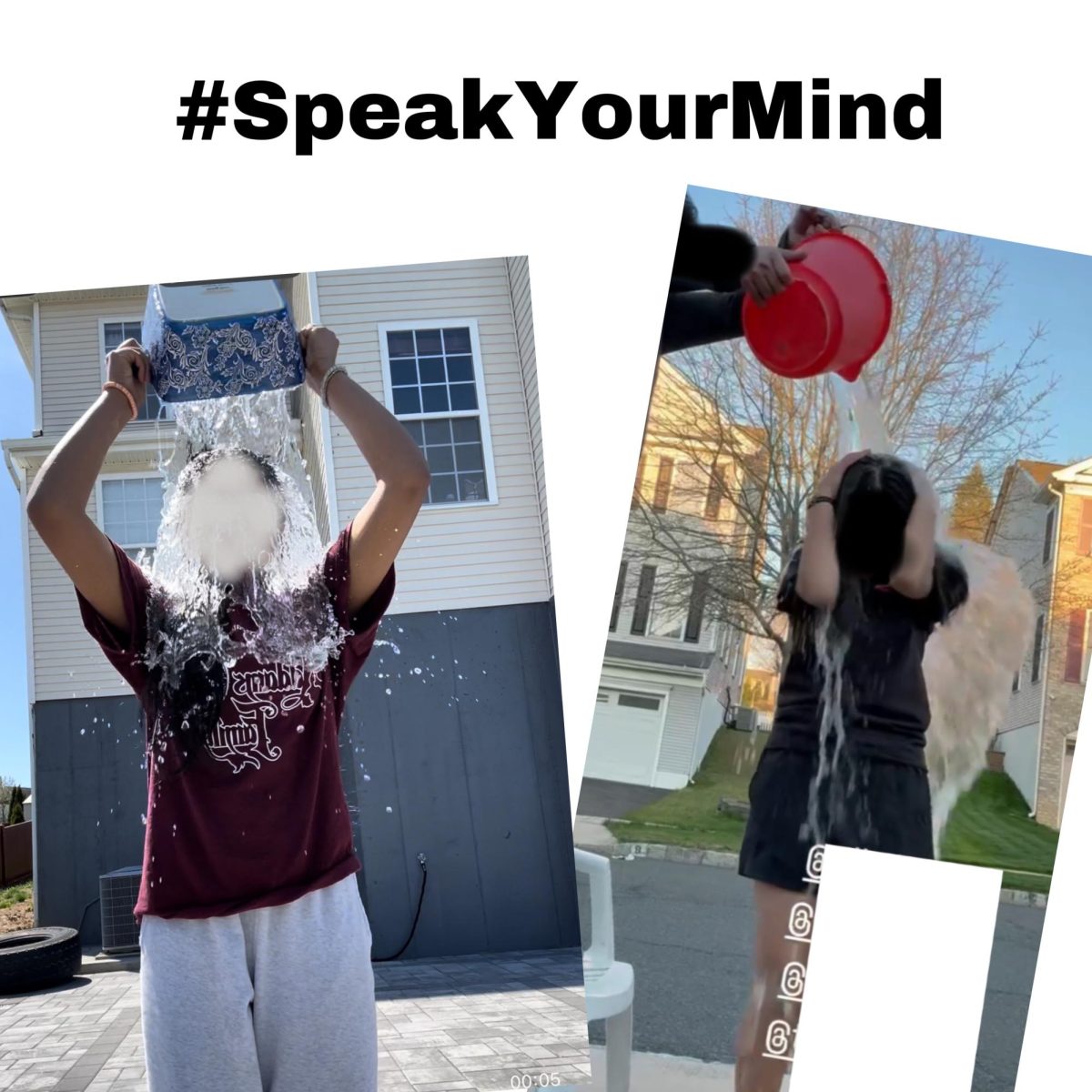
Svitlana Salamatova • Jun 14, 2024 at 4:38 pm
From the depths of my heart and from all the women of Ukraine, I thank the school leadership for the opportunity to talk with American children about peace and about our joint coexistence on Earth. We hope that together we can stop the military actions of unethical leaders and keep our countries in peace and prosperity!
Sincerely,
Svitlana Salamatova